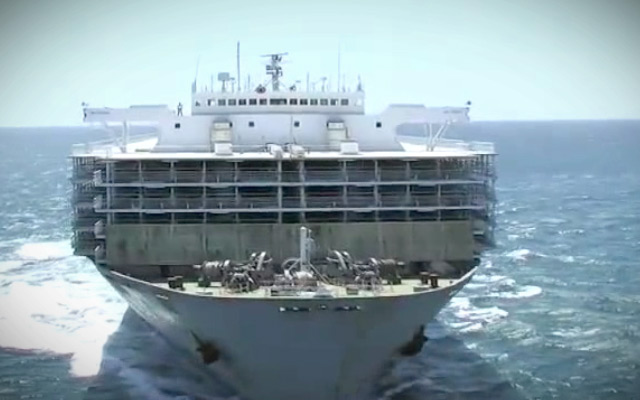
2018 was marked by scandals for the Swiss food company Nestle.
Nestlé, the largest food producer in the world, has an annual turnover of 80 billion euros.
Why is Nestlé one of the most hated companies in the world? The allegations date, from the contamination of baby food on the genetic manipulation of ingredients to animal experiments and the exploitation of children. Unethical advertising, manipulation of uneducated mothers, pollution and much more.
In addition, the Group is digging up water there, where none is left. Nestle is the world’s largest food company and the group has a history that makes even hardcore industrialists shudder.
But 2018 should not end well for Nestlé, because in India, the much-anticipated feature film “Tigers” by Oscar winner Danis Tanovic was shown.
Tigers is based on the true story of a former seller of Nestlé baby milk in Pakistan. Meanwhile, 15 million people have clicked on the” Tigers” trailer on Youtube. After 21 years, it is now possible in India and the subcontinent to hear the story of Nestle’s terrible scandal.
Twenty-one years have passed since Pakistan proved how Nestlé violated the WHO Code. It was in the 90s and this is a sad story about poverty, breastfeeding and greed. In less developed countries (LEDCs), Nestle has particularly addressed the poor. Your baby food should be almost as good as breast milk, which is highly unethical for several reasons.

The first problem was the need for clean water. Most of the people targeted by the corporation – especially in Africa – did not have access to clean water (many still do not), so the water had to be boiled. Due to the low literacy rate, many mothers were unaware of this. Therefore, they mixed the baby food with contaminated water and endangered their babies. Nestlé seems to have knowingly ignored this and encouraged mothers to use baby food even when they were aware of the risks.
Drinking water is vital. But global supplies are unevenly distributed. The supply of drinking water has been made the main task of the Swiss group Nestlé and as a precaution buys everything that looks like a source of water, because Water Makes Money.

To date, several countries and organizations are boycotting Nestlé, although Nestlé claims to comply with WHO regulations.
Also in 2018, a recent study shows how Nestlé leads consumers astray with promises of promises and different additives!
Nestlé has been criticided by all corporations worldwide, but Nestlé, the international Swiss corporation, is also the world’s largest supplier of baby food, accused of breaching ethical marketing rules and manipulating consumers with misleading claims about the nutritional benefits of its breastmilk substitute. Nestlé is also accused of selling ‘substandard’ baby milk in South Africa. It is not the first time that Nestlé has problems with baby food. Already in the 1970s and 1980s, there was the first scandal about milk powder from Nestlé and, as the film shows, even in the 1990s.

The “Tiger” Story
For the first time ever, a whistleblower in Pakistan managed to trace the system of bribery of health workers and doctors in minute detail. He found out that the baby food of his new company killed hundreds of children. After that began a lonely and dangerous fight against the company. Although the film premiered on September 8, 2014 at TIFF and was shown at film festivals in Berlin and New York, it was never released in India. Until then the streaming platform Zee5 got the rights to “Tigers” and on November 21, 2018 the Indo-French production for the video-on-demand service published.
The film looks at the life of Ayan, a pharmaceutical vendor who states that the baby formula he uses to achieve excellent results is the cause of malnutrition and even the death of infants. The real Ayan from “Tiger”, Syed Amir Raza Hussain, then awaited his second child – it was to induce him to take action against the company that had occupied him.
A message from the man behind the film “Tigers” Emraan Hashmi 2018.
The film “Tigers” based on my life story of personal sacrifice to expose an injustice and principled stand against Nestle in defense of the health of babies and their families. The film was directed by the Oscar winning director Danis Tanovic and me was portrayed by the famous Indian actor Emraan Hashmi. The mission we began in Pakistan was on a very small scale, but thanks to the filmmakers it has come into a very powerful medium to reach people all around the world. I am grateful to everyone who worked on this film and made it possible. I was not expecting that at the end of the filmi would be accepted with a standing ovation @ TIFF!
I am thankful that people love it and understand what we have been struggling to do as a family.
My comment: I remember that my mother was a fan of this multinational group and all of us have been fattened with Nestlé milk for years!
She did not know any better, but today, if we want, we almost all have a cheap and uncomprehended access to information and knowledge.
Therefore, make sure that you do not support and access the “Tigers”, as much as possible.
Best regards, Venus



